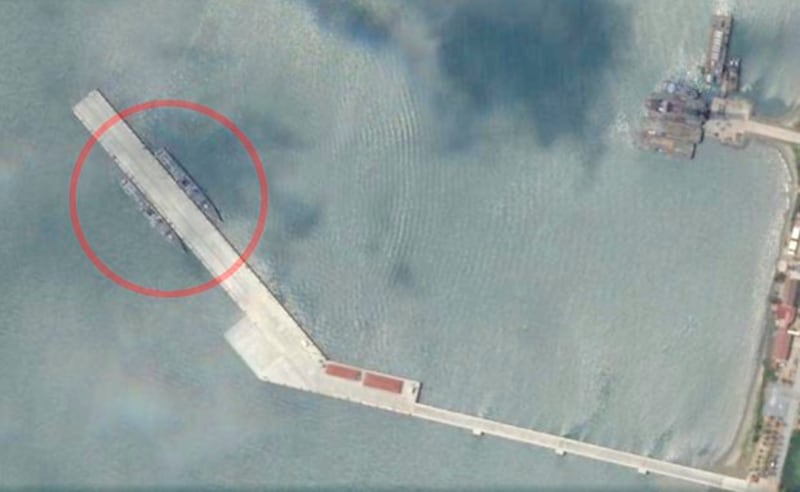Veteran Cambodian leader Hun Sen has disclosed that he recently had a meeting with William Burns, director of the U.S. Central Intelligence Agency (CIA), who was in Cambodia on an unannounced visit.
The former prime minister who is now Senate president posted on Facebook dozens of pictures of himself and Burns, apparently taken before and during their meeting on June 2 at his home in Takhmao town, near the capital Phnom Penh.
Hun Manith – Hun Sen’s fourth son and head of the Cambodian military intelligence department – was seen attending the meeting, together with anti-corruption chief Om Yentieng and Dy Vichea, Hun Sen’s son-in-law and deputy national police chief.
In an earlier Facebook post, Hun Sen said that he had informed Burns that Cambodia won’t take part in the Ukraine peace summit in Switzerland this weekend, not because of pressure from China but because the conference could not be successful without Russia’s participation.
Hun Sen has condemned Russia’s 2022 invasion of Ukraine.
While not giving further details about the meeting, Hun Sen said that the main area of cooperation between Cambodia and the CIA was counter terrorism and “not against any country.”
Cambodia has intelligence cooperation with other countries, he added, as this was a “normal course of a sovereign state.”
Hun Sen said in his Facebook post that he has had a working relationship with the CIA management since 1997 and met in person with some of the agency’s heads, including James Clapper and David Petraeus.
David Hutt, a research fellow at the Central European Institute of Asian Studies, said he suspected the latest meeting was about Chinese-run online scam operations in Southeast Asia that the U.S. now sees as a major security threat.
A recent study by the Congress-founded U.S. Institute of Peace (USIP) said that Cambodia, together with Myanmar and Laos, form the epicenter of the regional scamming industry that "target millions of victims around the world with illegal and unregulated online gambling and sophisticated scamming operations."
As of the end of 2023, the annual value of funds stolen worldwide by these syndicates could be as high as US$64 billion, USIP said, noting that in 2023 alone, U.S. citizens lost US$3.5 billion to online scams run from Southeast Asia.
The United States is also concerned about China’s access to Cambodia’s Ream naval base.
A U.S. think tank, the Asia Maritime Transparency Initiative (AMTI), said in April that Cambodia appeared to have given the Chinese navy extended and exclusive access to the base. Two Chinese warships have been docked at a newly built pier at Ream since early December and recently took part in an annual bilateral military exercise.

In an interview with RFA Khmer service, AMTI’s Director Greg Poling said that the real value of the naval base for the Chinese military could be in spying, intelligence collection, and satellite tracking.
Cambodia has repeatedly denied that China has been allowed to establish a permanent base at Ream as that would be against Cambodia’s constitution.
The publication of the photographs of the meeting, observers say, could be aimed at demonstrating balance in Cambodia’s foreign relations in the face of accusations by critics that Cambodia has become too dependent upon China.
Edited by Taejun Kang.
